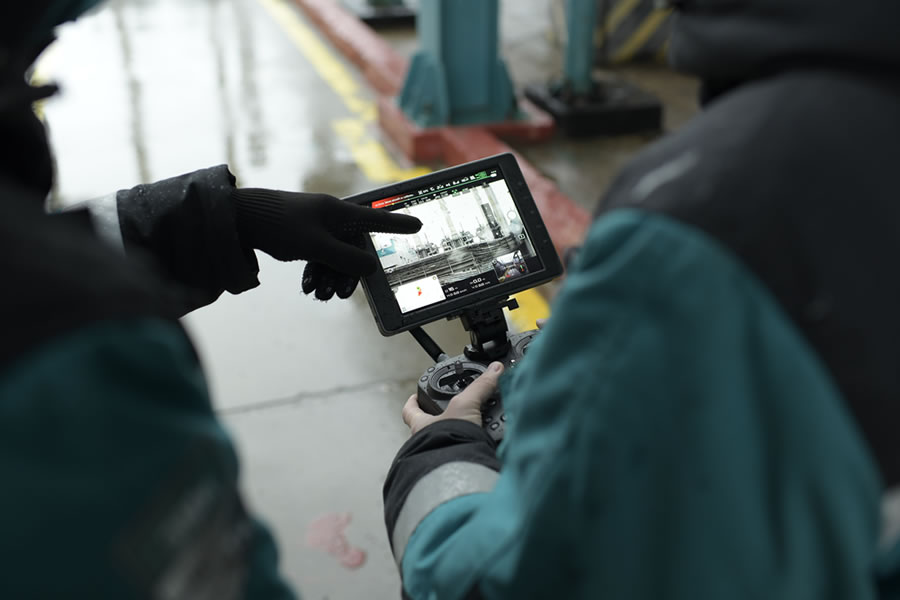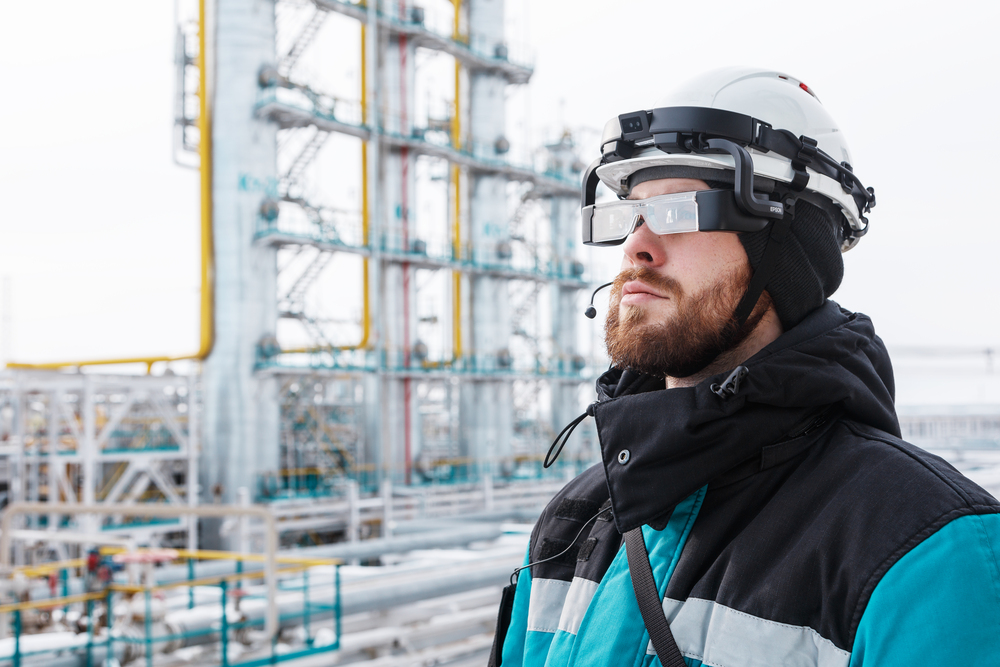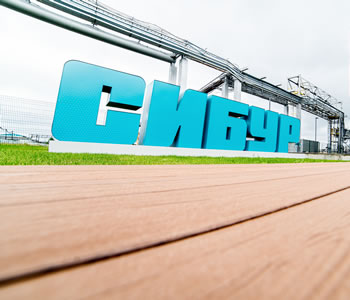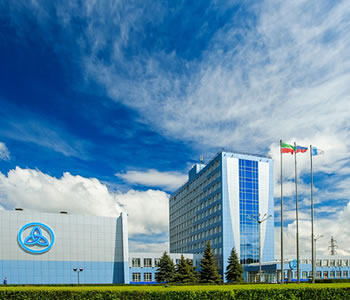As one of the most strategic industries of the Russian economy, the petrochemical sector enjoys greater stability and stronger growth than other industries. Petrochemical facilities are now actively implementing technologies to accelerate their digital transformation – a journey to be taken by all modern manufacturing industries. It is no exaggeration to say that SIBUR is an engine of this transformation. Digital transformation does not just translate to efficiency gains across the organisation; it also unlocks useful tools for customers in other industries. We would like to note that SIBUR is willing and ready to work with its customers on digital solutions.
The era of the Fourth Industrial Revolution (Industry 4.0), which is evolving at an exponential pace, as Professor Klaus Schwab, Founder and Executive Chairman of the World Economic Forum, aptly put it, is redefining the new normal by fundamentally changing not only our production processes but also the very workings of the world as it goes digital. We are witnessing a turning point in the development of the entire human race, but the future of this development will be shaped by those who take action. That is why digital transformation is becoming a prerequisite for successful growth on every level: an enterprise, an industry, a city, or even a country. Huawei’s Global Industry Vision 2025 predicts that 97% of large enterprises worldwide will use digital technology by 2025.
Digital transformation statistics
The key benefit of digitalisation is the fact it unlocks improvements in productivity and efficiency, as well as resource-saving. However, the transition to a digital enterprise requires not only an overall process digitisation, but also a horizontal digital integration, which extends beyond the enterprise to also encompass its partners and customers. Dramatic gains in production volumes and competitiveness are only possible through a comprehensive digital transformation that goes beyond all production stages to also cover all functional areas across an organisation, from HR policy to financial activities, logistics, etc.
By 2022, 70% of all organizations will accelerate their use of digital technologies, transforming existing business processes to improve employee productivity, customer interaction and sustainability.
According to Performance Improvement Partners, a US technology consulting firm, more than half (52%) of companies that exceed USD 1 billion in revenue have already completed digital transformation or are in the process of doing so. 36% of large organisations are using machine learning to enhance data analysis. 60% of enterprise executives feel that IoT will play an important role in their companies’ digital business strategies. Worldwide spending on new digital technology will hit USD 4.1 trillion in 2021, an increase of 8.4% over 2020. Investments in digital transformation are rising at more than three times the rate of overall IT spend. The main areas of these investments are improving operational efficiencies, enhancing quality of products and services, sharing knowledge, and improving the reliability of supply chains, occupational health and safety, and environmental protection.
97% of large enterprises worldwide will use digital technology by 2025
According to the IDC FutureScape: Worldwide Digital Transformation 2021 Predictions study by International Data Corporation (IDC), direct digital transformation investment is growing at a compound annual growth rate (CAGR) of 15.5% and is expected to approach USD 6.8 trillion by 2023. By 2023, 75% of organisations will have comprehensive digital transformation implementation roadmaps, up from 27% today. By 2022, 70% of all organisations will have accelerated the use of digital technologies, transforming existing business processes to drive customer engagement, employee productivity, and business resiliency.
Digitalisation in the petrochemical industry
The world’s leading petrochemical companies are also going digital. For instance, SABIC is leveraging artificial intelligence to gain deeper insights into price and demand forecasting. Big data, coupled with predictive analytics, is opening the door for greater efficiency and better big data-driven business decisions – while driving an advantage in the competitive business environment. Sinopec is implementing its Smart Factory 2.0 concept: a comprehensive management system for equipment repair and maintenance where equipment failures can be addressed in advance through data analysis and diagnostics, leading to improved equipment utilisation, with maintenance costs down by 20% and unscheduled shutdowns reduced by 50%. The company has also piloted smart oil and gas fields where drones are used to run diagnostics, monitoring, and visual identification of leakage risks. BASF is investing in next-generation quantum computing technologies in a bid to find new ways to boost computing power for processing big data.

BASF, in an effort to find new ways to increase computing power to process huge amounts of data, is investing in the next generation of computing technology - quantum technologies.
In Russia, petrochemical companies are also adopting a number of practices to enhance supply chain forecasting, risk management, and cost optimisation. For instance, the SIMULIA DigitalROCK® solution enhances raw material production methods: it is a virtual lab that uses 3D core sample imaging as an input to build a digital core model for digital pore-scale simulation of the relative permeability of sedimentary rocks and select the best approach that will enhance oil and gas recovery. Solutions like these should become the driving force of digital transformation for the domestic petrochemical industry; however, they are few and far between so far, prompting large companies to invest in own digital innovation engines.
Digital transformation has become one of Russia’s national development goals through 2030
Russia: future and present
Digital transformation has become one of Russia’s national development goals through 2030. By that point, key sectors of the economy, social sphere, and public administration should have reached digital maturity, with investment in domestic IT solutions up fourfold vs 2019 levels. The benefits of digital transformation for enterprises will include increased revenue, market share, and competitiveness, as well as improved efficiency and human capital development. We will see increasingly more new investment projects and startups, with faster and more frequent new product launches in the market.
So far, according to the Digital Funnel of Consumption: Features and Prospects of the Russian IoT Market study, Russia is six years behind digitally-leading countries. While innovative industrial enterprises make up 11% of the total companies in Russia, in some Western countries they account for up to 60%. Experts pinpoint several reasons for this gap, including the lack of a legal framework (legislation has recently been passed or is being drafted) and skilled professionals, as well as businesses prioritising quick returns.
The digital transformation of enterprises will increase revenues, market share and competitiveness, efficiency growth, human capital development.
This situation is on the cusp of change: in early November it became known that the Government is eyeing a number of projects for the innovative development of manufacturing industries. The relevant directive was signed by Prime Minister Mikhail Mishustin. The document lists strategic focus areas aligned with state programmes and national projects approved for the period up to 2030, including:
-
the formation of a support system for domestic software solutions for manufacturing industries as part of the Smart Manufacturing project
- the introduction of virtual product testing technologies as part of the Digital Engineering project
- the improvement of recruitment mechanisms in line with the New Employment Model
- the build-up of product customisation capabilities as part of the Future Products project.
“With this aim in view, we will increase the funding for national industrial software projects fourfold. They include technologies such as the Internet of Things, artificial intelligence, robotics and sensorics, and virtual and augmented reality,” noted Mikhail Mishustin. He also stressed that by the end of this decade, it is important “to increase the share of domestically-made electronic components for the digital transformation of our industries to over 40%. To maintain the competitiveness of production, we must not only go digital but also organise work on the ‘good-fast-and-cheap’ principle. Our products must also be tailored to the customers’ requirements.”
But while strategic directions set the overall course, the pathway to digital is paved by market leaders, large companies that pioneer the use of innovative IT solutions and often develop them in-house.
SIBUR: transformation experience
A prime example is SIBUR, which embarked on its digital transformation journey back in 2018. Today, dozens of digital initiatives have already been implemented to help optimise production processes, reduce raw material and energy consumption, facilitate price forecasting, and improve product quality and customer service. The Company has optimised dozens of operating and business processes by deploying predictive analytics tools, robotics, and mobile solutions, as well as augmented reality and Industrial Internet of Things (IIoT) solutions.
SIBUR Digital's employees create mathematical models and recommendation systems, implement hardware and software solutions and platforms, and develop equipment for operations in challenging climatic conditions.
In 2020, the Company’s core IT capabilities were consolidated within a digital cluster, SIBUR Digital, including data analytics and machine learning, enterprise data management, digital product development, digital manufacturing development, IT infrastructure, and operations. SIBUR Digital employees build mathematical models and recommendation engines, implement software and hardware solutions and platforms, and develop equipment for challenging climatic conditions.
The overall impact from digital transformation and streamlining of SIBUR’s processes is currently estimated at RUB 8 billion, a figure driven by the increased output of finished products, optimised costs, and minimised equipment downtime, as well as more effective supply chain management, demand forecasting, and pricing
The key principles driving the Company’s digital transformation are prioritising initiatives based on their economic impact and purposefully introducing digital tools. Today SIBUR is transitioning from point solutions, which often fail to deliver dramatic business impact, to end-to-end digitisation that covers the entire value chain, from raw material sourcing and equipment procurement to the delivery of finished products to customers.
SIBUR’s proprietary wireless IoT sensors mounted on process units feed real-time data to the IoT platform, enabling operational staff to detect deviations in a timely manner and prevent emergency shutdowns. Predictive diagnostics of equipment and monitoring of its condition enable potential shutdowns to be rapidly predicted and repair and maintenance activities to be planned in advance. Digital personal assistants developed by the Company enable operators to make the best possible decisions to control operating processes. The Smart Pricing digital product facilitates price forecasting by analysing multiple factors: operational indicators, product price quotes, stock market data, and external market factors.
SIBUR also relies on a digital platform to collect and store data from various sources for improved efficiency and corporate data management. By leveraging not only internal but also external data sources in analysis, data analysts develop recommendations for optimising operating processes and performance both within SIBUR, and also for our client companies. In a unique move for the Russian petrochemical industry, SIBUR is expanding its customer service and preparing recommendations based on data-driven product quality analysis and other operational indicators provided by partner companies. By modelling the production chain based on customer data, specialists can pinpoint issues and provide recommendations on how to fix them. This partner approach to customer service helps to fully eliminate defects and optimise process parameters at the customer’s production facilities.
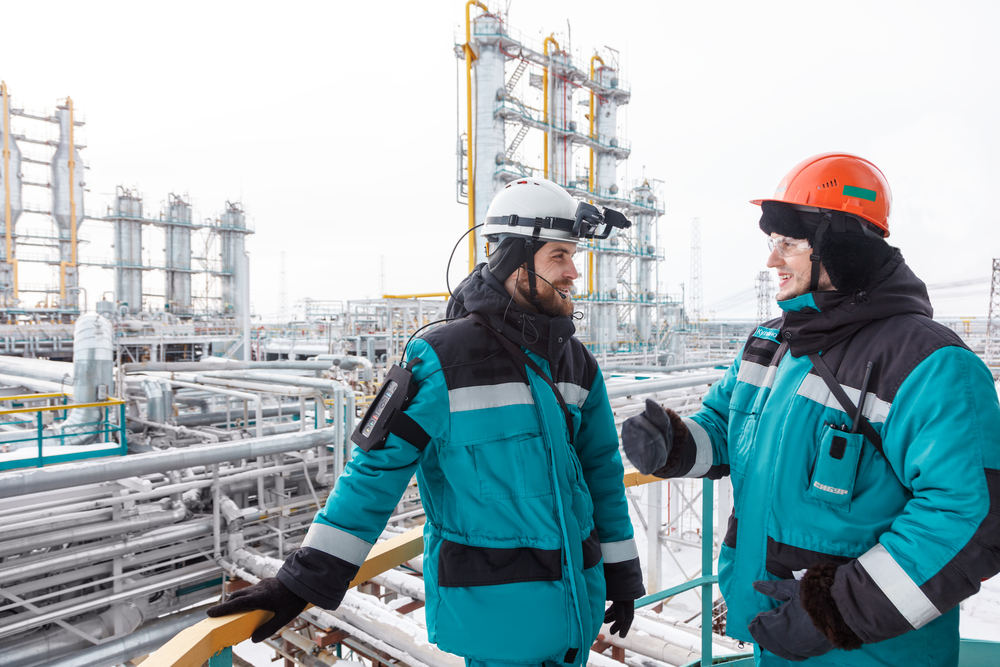
SIBUR's initiative, unique for the Russian petrochemical industry, is to expand customer service and prepare recommendations based on the analysis of product quality and other production indicators provided by partner companies.
During the construction of Amur GCC, digital solutions were integrated early on at the design stage. “Our idea was to build a digital Amur GCC from the start, not to focus on incorporating digital-ready solutions (although subsequent digitisation will certainly take place), but to initially embed future-proof digital solutions for the 21st century and possibly even beyond,” emphasised Mikhail Karisalov, Chairman of the Management Board and CEO of SIBUR LLC. The plant will meet the highest global environmental standards and minimise human exposure where necessary, for example in hazardous areas, in routine and physically demanding operations, etc. Promoting the circular economy is a key focus of SIBUR’s sustainability strategy.
In autumn 2021, SIBUR deployed a digital production and end-product distribution scheduling model based on a software solution by DELMIA Quintiq, a global leader in supply chain planning and optimisation solutions. The application, which has replaced disparate planning tools, will enable more effective supply chain management. The new planning model was designed for five plants manufacturing more than 200 products shipped to more than 180 points of sale worldwide. DELMIA Quintiq algorithms facilitate optimised scheduling for product manufacturing, shipping, and sales, accounting for specific petrochemical technologies and customer needs. The application enables smart scheduling of production operations to minimise production-line changeovers and maximise productivity.
Digital product – "Remote AR Expert" won the first place in the category “The best solution for the oil and gas industry using virtual and augmented reality technology”.
In 2021, SIBUR partnered with GenerationS, a corporate innovation development platform, to set up the first digital accelerator to source digital solutions in occupational health, non-standard contracts, meeting planning, corporate training, and HR. The potential of these innovation engines can already be safely judged by the number of applicants: more than 250 teams from Russia and beyond have applied, including startups with minimum viable products (MVPs), companies with production-ready digital products, and IT teams with a track record in product development across a number of the accelerator’s focus areas. Eighteen external teams were picked to pitch their solutions to the judging panel for each of the initiatives. The judging panel recognised the top nine projects, which moved to the acceleration stage. The Company chose an industrial partnership model for engaging with startups: during a four-month period, participants collaborated with SIBUR’s functional customers on developing and testing prototypes for digital products. Accelerator participants benefitted from our industry expertise, organisational support, and funding to finetune their digital products, while also being offered the opportunity to further their partnerships with SIBUR.
SIBUR’s developments were highly praised by the judging panel of the Best Digital Solutions for the Oil and Gas Industry competition, hosted by ComNews
“With the selected solutions, we will make full use of algorithms to simplify employees’ work and empower them with optimal solutions for daily routines, freeing up more time for creative, value-adding work and more opportunities to develop and improve their skills,” explained Vasiliy Nomokonov, Member of the Management Board – Executive Director at SIBUR.
The overall impact from digital transformation and streamlining of SIBUR’s processes is currently estimated at RUB 8 billion, a figure driven by the increased output of finished products, optimised costs, and minimised equipment downtime, as well as more effective supply chain management, demand forecasting, and pricing.
SIBUR’s developments were highly praised in 2021 by the judging panel of the Best Digital Solutions for the Oil and Gas Industry competition, hosted by ComNews. Our Remote AR Expert digital product was named the winner of the Best VR/AR Technology Driven Solution for the Oil and Gas Industry category, and our IIoT integrated solution won the Best IoT Solution for the Oil and Gas Industry category. The integrated solution comprising AR glasses equipped with a camera, LCD display, and Wi-Fi and Bluetooth modules enables remote augmented reality consultations with experts from anywhere in the world. “The Remote AR Expert solution has become indispensable, for instance, in manufacturing ZapSibNeftekhim’s new products: it helps solve problems related to suboptimal settings of processing equipment and multiple other factors. Augmented reality consultations can also enhance equipment inspections, regular inspections, and work supervision, which is particularly relevant amid COVID-19 restrictions.
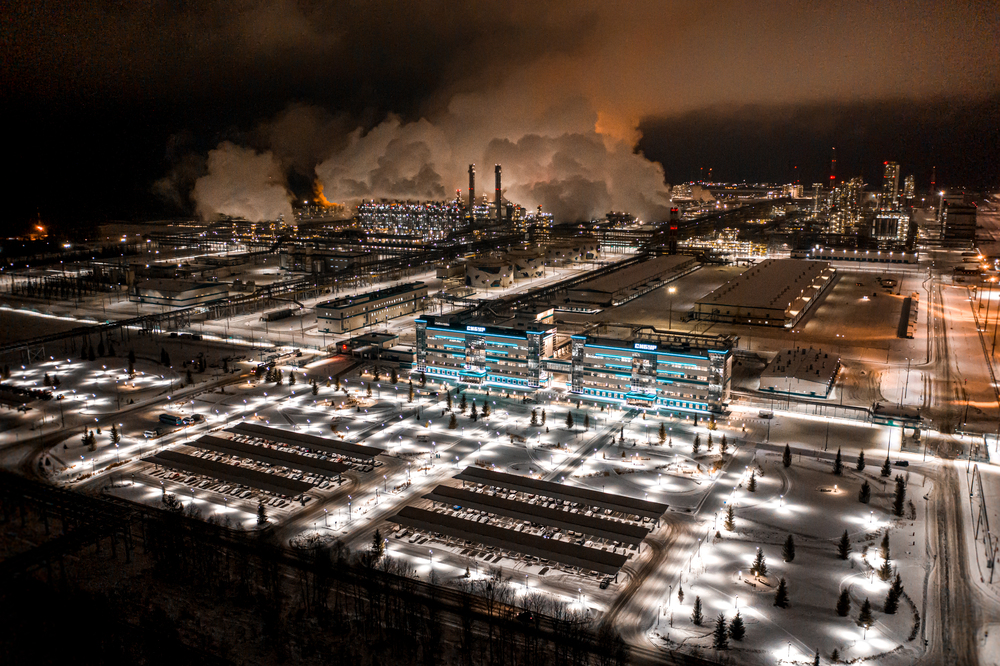
"AR Remote Expert" has become indispensable in the production of ZapSibNeftekhim's new products: it helps to solve problems related to suboptimal setting of processing equipment and other factors.
According to Alisa Melnikova, CEO of SIBUR Digital, the future of manufacturing lies in unmanned operations, where humans in hazardous production facilities and routine operations are replaced by machines, but “human-machine interaction is still maintained where options are extremely varied and a huge number of factors need to be considered”. It is this kind of interaction that is currently driving the development of technology solutions to redefine long-standing principles across production, consumption, and ways people interact with each other and with nature.
Science-based innovation and experimentation, commitment to sustainability, and a desire to not only boost own performance but also to enable better performance for partners and customers are some of the less obvious keys to a successful digital transformation. However, as can be seen from examples offered by large petrochemical companies, it is these enablers that are driving the development of the best digital tools that can find applications in other industries.
Download PDF




